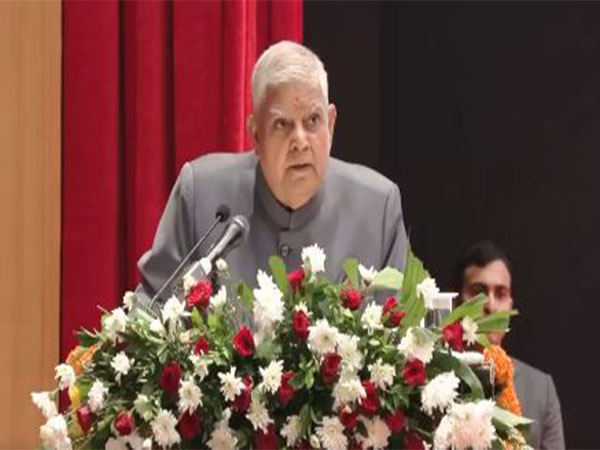Vice President Dhankhar Reflects on the Judiciary and the 1975 Emergency
Vice-President Jagdeep Dhankhar praised the judiciary's steadfastness while reflecting on the 1975 Emergency. He highlighted the constitutional erosion and the judiciary's challenges during that period, urging vigilance against forces undermining democracy today.

- Country:
- India
Vice-President Jagdeep Dhankhar on Saturday praised the judiciary's unwavering commitment to the rule of law, while also reflecting on the Emergency period imposed in June 1975 by then Prime Minister Indira Gandhi. He described the era of Emergency as 'the draconian darkest period' since independence, expressing concern that even the highest levels of the judiciary, usually a 'formidable citadel of basic rights,' yielded to the 'brazen dictatorial regime.'
'The highest court ruled that no one could move any court for enforcement of rights as long as the emergency lasted,' Dhankhar remarked, highlighting the severe implications this ruling had on the liberties of countless citizens. 'Liberty was held to ransom by an individual, and thousands across the country were arrested without any fault except that they believed in Bharat Maa and nationalism at heart,' he added.
Dhankhar commended the courage displayed by nine High Courts during this dark chapter, particularly the High Court of Rajasthan. 'The High Court of Judicature for Rajasthan holds a place of pride, being amongst the nine High Courts that held, despite the imposition of Emergency, that a person could demonstrate that his or her detention or arrest was not in compliance with the Rule of Law.'
Reflecting on the long-term impacts of the Emergency, Dhankhar emphasized its detrimental effect on India's development trajectory. 'Imagine for a moment, if the judiciary at the highest level had not caved in, had not capitulated to unconstitutional mechanisms, and had not yielded to the dictatorship of Smt. Indira Gandhi, there would have been no Emergency. Our nation would have attained greater development much sooner. We would not have had to wait for decades,' he said.
The Vice President praised the government for observing June 25 as 'Samvidhaan Hatya Diwas,' a solemn reminder of the day when the Constitution was recklessly trampled upon by an individual. He underscored the presence of forces with a 'pernicious agenda and sinister designs' aimed at weakening the nation from within, often in ways that are not immediately apparent.
Dhankhar cautioned that these forces might infiltrate the three institutions meant to protect democracy, with their true intentions unknown to us. He further expressed deep concern over attempts to spread a narrative suggesting that what transpired in a neighboring country could soon happen in India. Questioning the individuals who have made such assertions, he urged citizens to be vigilant against these narratives.
The Vice President warned against anti-national forces exploiting fundamental constitutional institutions to legitimize their actions. He emphasized that these forces aim to derail democracy and urged citizens to prioritize national interests above all else.
(With inputs from agencies.)
ALSO READ
Carter's Legacy: Champion of Global Democracy
Simultaneous Elections Controversy: A Threat to Democracy?
Jimmy Carter: A Legacy of Democracy and Global Peace
Georgian Political Turmoil: EU Relations and Democracy at Crossroads
Biden Awards Presidential Citizens Medal to Key Figures in Democracy Defense










